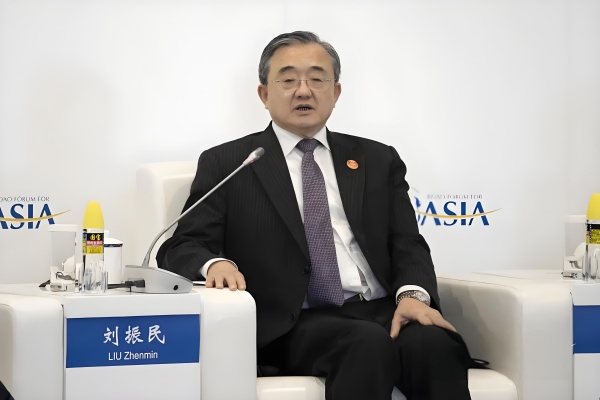China's special envoy on climate change, stated that the concept of "overcapacity" is misleading and inaccurate
Liu Zhenmin, China's special envoy on climate change, stated that the concept of "overcapacity" is misleading and that competition among companies signifies progress.
From JIEMIAN

Liu Zhenmin, China's special envoy on climate change, stated that the concept of "overcapacity" is misleading and that competition among companies signifies progress.
He emphasized that from the perspective of social market demand, both domestically and internationally, there is a significant need for additional production capacity to meet the energy transition in China and globally. This is particularly important considering the ongoing substitution of renewable energy for traditional sources. Liu Zhenmin made these remarks during an interview with Jiemian News at the 15th Summer Davos Forum.
During a sub-forum on the same day, Liu Zhenmin highlighted the global challenge of transitioning to sustainable energy in order to address greenhouse gas emissions. He stressed that achieving carbon neutrality requires collaborative efforts from the international community to promote technological innovation and policy coordination through cooperation.
Liu pointed out that greenhouse gas emissions are a primary driver of global climate change. To mitigate this trend, countries must take measures to reduce emissions by improving energy efficiency, developing renewable sources, and adopting low-carbon technologies.
He also underscored that achieving global carbon neutrality is not solely a national responsibility but necessitates joint efforts from governments, businesses, and all sectors of society. According to the Paris Agreement, developed nations have an obligation to provide financial and technical support to assist developing countries in achieving low-carbon development.
He observed that over the past decade, China has extended support to numerous developing nations through South-South cooperation mechanisms, aiding them in achieving sustainable development in the areas of energy, environment, and economy. Looking ahead, China is committed to further enhancing its manufacturing capacity in wind and solar energy while striving to sustain the downward trajectory of prices, thereby making clean energy more accessible.